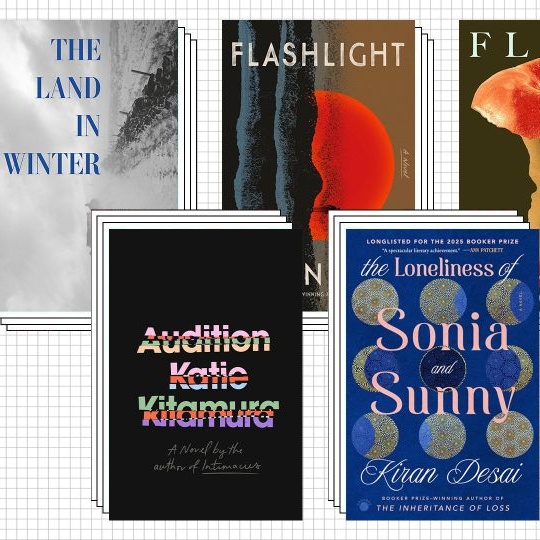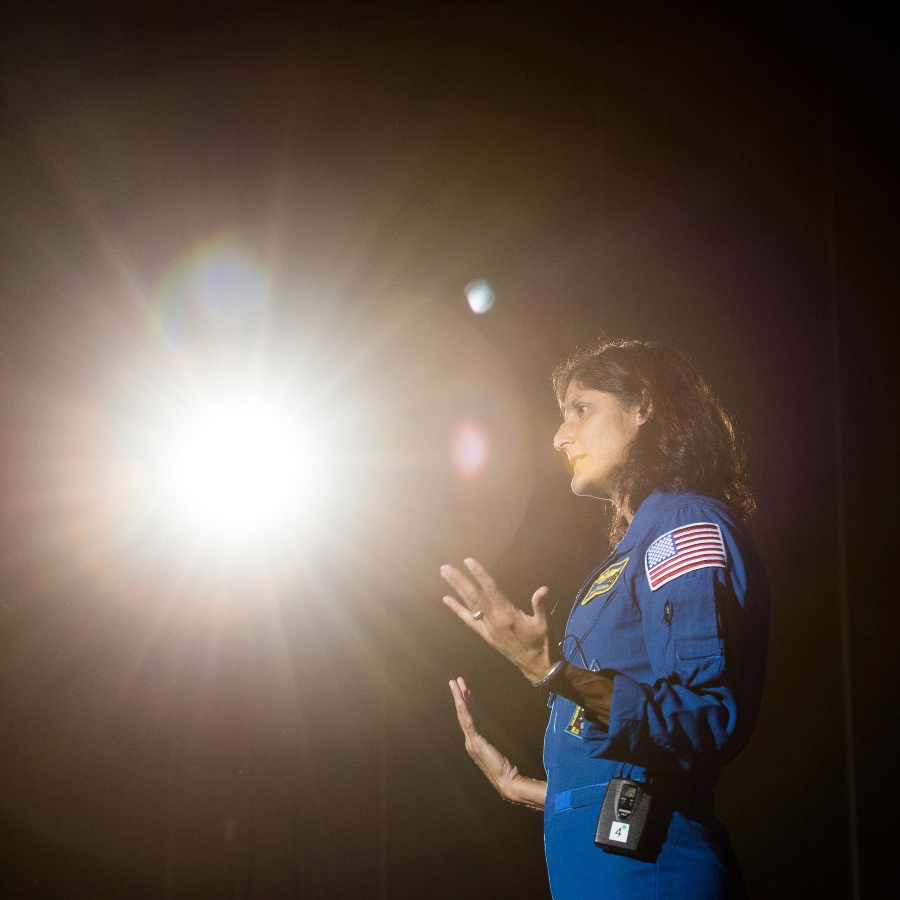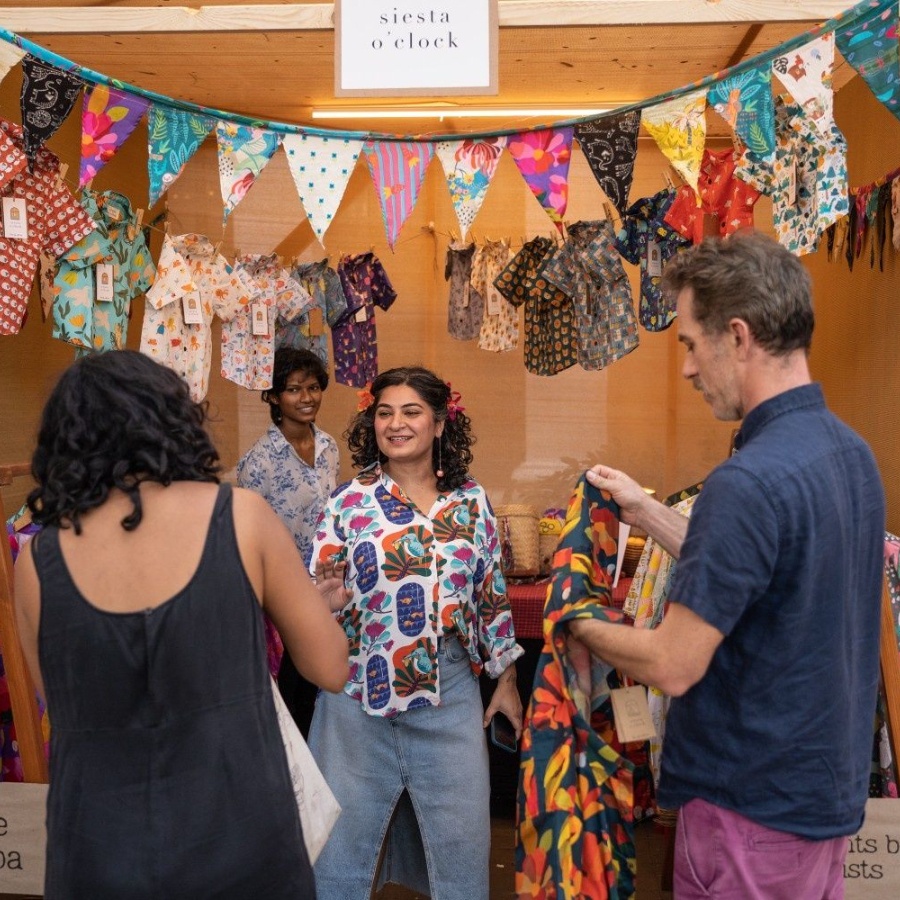Ok, so first things first: Oprah! That is a serious badge of honour, especially for a young novelist. She called you an “exquisitely skilled author” and says that when she called you, you were the best conversation she ever had. What was going through your mind at that very moment?
It was a Saturday in May. I was at home, pregnant. My older son and husband were colouring in the living room. I spent half that call completely confused. I thought it was someone pulling my leg. But after a while, she was reading lines that she loved from the book and asking such detailed questions. It was honestly surreal. I was struck by the care with which she had read the book. I ran out and told my husband first and then my parents and my sister and swore them all to secrecy.
Take me back to the genesis of this book. You wrote your debut, A Burning, in 2020, which got brilliant reviews. Then you decided to focus on writing full time. Now you have a baby. So much has happened since. What was the original starting point for this book? And how did you end up here?
I actually started writing this book in 2019, before A Burning came out. I really wanted to write something about climate change in Kolkata and hope and love in a time of crisis. With A Burning, I felt so encouraged. So many great books are published so quietly; books struggle to get attention in a way that movies and music don’t. So, any attention to a book is a gift. I felt very supported. It took me six years to finish this book. I threw out hundreds of pages. There were so many moments of feeling like my vision of this [book] exceeded my skill. But you don’t let [those doubts] push you away—that’s the most important thing. You need to meet them and feel them. My life also changed. I had my first child. And it changed how I saw my life and it also changed the story of this book.
There's this sentence in the book that has stayed with me: “A mother with no generosity, mother to nobody but her own child, her love showing how mother was the opposite of motherly.” This idea of maternal instinct and motherhood is so wrapped up in this story.
You are the first person to articulate that. What we understand as something maternal could use questioning and redefining. When I started writing this book, I occupied the perspective of the daughter. The main character in the beginning was a child of 11 years, journeying through Kolkata, looking for food. I spent so long on this character and journey, but it just wasn’t working. And you know that sinking feeling? Then I had my son. I became interested in this character’s mother. It became so much more complex. You feel the strength and ferocity of a mother’s love and you question: what would I do with this love in a time of crisis? We think of ourselves as good and decent people, but we’re living in a time of relative abundance. What happens when a crisis threatens your moral centre?
One of the roots of this idea was seeing my mother. There’s very much a culture in India that if there’s a meal, the mother will take the leftovers. I grew up seeing that daily sacrifice. As a mother you put yourself last in small ways and in big ways. Becoming a mother... It’s such a complex feeling. It’s not simple. It’s not straightforward. It can be really intricate, it can hold a lot of contradictory impulses—even the impulse to steal from someone else’s child for your own. All those choices are involved in composing our ethical self.
The Kolkata in your novel is dealing with an extreme climate crisis. This is the backdrop for the events in the novel as well as the driver of the plot. What was your reasoning behind centering your novel around it?
I am interested in how extreme situations can push us to confront our moral centres. Are we our true selves in times of comfort or in times of crisis? One of the things fiction can do is allow us to glimpse who we might be under great pressure. So, that’s part of what I was thinking about. And then, to step away from storytelling and face the emotional texture of it... Imagine reading grim predictions about the future of your hometown. How would you face that feeling of sorrow and loss? Kolkata is one of the cities in the world that’s most profoundly affected by climate change. It has grown hotter. It’s predicted to endure more frequent and more severe storms. So, the near future this novel imagines grows from these scientific predictions.
Was it challenging to balance the climate aspect with the more intimate family dramas playing out in Ma’s and Boomba’s lives?
All climate fiction is also the fiction of family. All climate stories are love stories. Love of home, love of our children. It is through the stories of people that, in a novel, we can enter the vastness of climate change. And I was very clear about doing that in this novel.
So, mother to mother, writer to writer: how do you find your writing has changed after becoming a parent?
I had my younger son two months ago. Before he was born, I would write when my older one was in preschool. I have to acknowledge the role of money in this; it’s really not talked about much. I wrote my first book at the margins of my job. I grew up with parents who worked 9 to 5—my mother as a teacher and my dad at an electronics company—so I never conceived of a life without a ‘job’. But a grant from The Whiting Foundation allowed me to seriously think about quitting my editor’s job and focus on writing. I realised I can do two things really well—parenting, an office job or writing—so something had to give. It’s a leap, which is uncharacteristic for me. I also started teaching, which is a lesser time burden, and the past few months I’ve been taking notes and looking at them, but I haven’t started writing my new book yet.
One of the things that I really admire is your language—it’s sparse but also so vivid, propulsive. How do you write for an audience that’s so easily distracted?
I feel like you’re really making me reflect on my journey of writing. I wanted to write a stronger book. I wanted to write something that is more complex, where the language would have more pressure on it. Can I write something that is beautiful on the line level and which also moves with the pacing of a thriller? Can I entertain somebody but also make them think of unsettling, big ideas? And that comes down to a pressure you put on a word. What do these words do? Are they carrying their weight in their book? Are they helping move the story forward? Interrogating the function of each word and each line... It’s slow and it takes me time, and it feels rewarding. That's what writers work so hard to get at.
I needed to sustain great pressure on these characters and I needed to show their self, their moral being, changing. The structure of seven days felt like a good amount of time. And managing to show that significant change can happen, too. There is a part of the writing process, an interior process—how can I narrate this story to myself. And then I shift: how can I invite a reader in, now that it has its own legs? It connects to what we were talking about—entertaining being hard work, and keeping them turning the pages, and moving forward with the story. So, I do think about plot and entertainment and engagement. But the guiding light that we have as writers is of our own sense of excitement—I have an insight and I want to share it. The lights you have along the way are lights you create.
This book looks at another perspective—the emigrant experience. “Had these emigrants ever loved the city, ever known its many faces? Perhaps such natives had always been, somewhere in their temperament, foreigners.” I found this so poignant. This idea of belonging and not belonging. They haven't emigrated yet, but it’s sort of a limbo.
There’s so much focus on joy and accomplishment when you move to a new place, but it’s more difficult leaving behind your hometown and your mother tongue, the networks of people who know you, who knew you as a child, but also the person at the corner shop where you bought chips, or the pharmacy where you go to buy Crocin. Those networks of knowing that animate a whole city, a whole neighbourhood... What’s so beautiful about relationships in India is that even distant and thin ones can be activated. That mode of reliance, that web of connections and texture of life, is so particular to India. I miss having a family life where my parents, my aunts, and uncles are a part of my daily life. And the awareness of that, of missing the jokes and humour, the way people connect, is the sorrow the emigrant carries. It’s the sorrow of having left behind Kolkata. And you spend the rest of your life dealing with that.
Megha Majumdar’s A Guardian and A Thief is published by Penguin Random House India; ₹699







